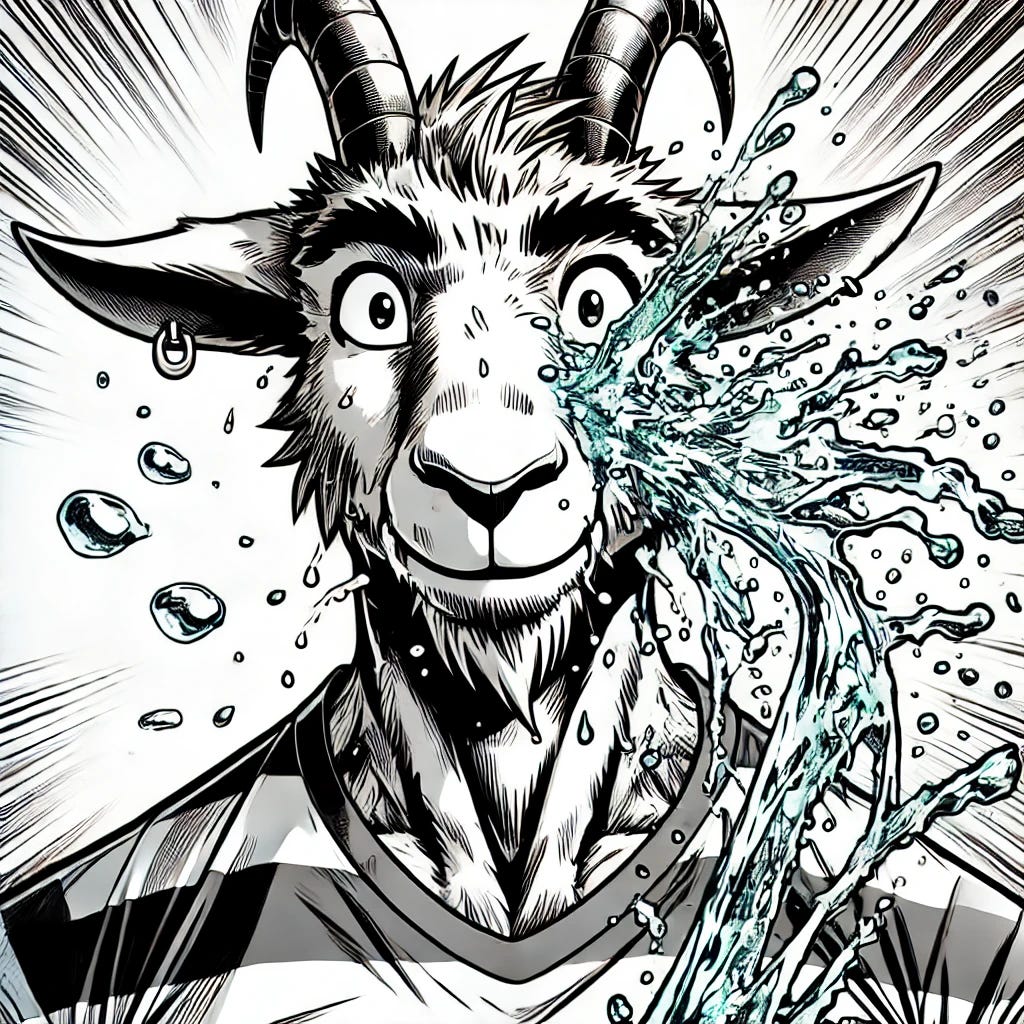Cold Calm
If you need to calm down, you might try splashing some cold water on your face.
You’re thinking: that seems paradoxical! After all, cold water tends to wake you up and irritate you, not calm you down. What’s going on here?
All around your nostrils and eyes, there are special receptors that you can trigger with cold water. These receptors can cause your heart rate to slow down considerably, which can involuntarily calm you down a bit.
This reaction is called the Mammalian Dive Reflex, or MDR for short. Like the name implies, it centers around the way mammals plunge into water. Since mammalian origins center around water, it’s perhaps no surprise that we’re all encoded with some type of MDR.
It’s also probably no surprise that aquatic mammals like dolphins, whales, and seals have the strongest Mammalian Dive Reflex. After all, they might need to spend hours underwater chasing after a potential meal, or being chased by one. Being able to dive deep and use less oxygen can mean surviving…. or not.
Human beings aren’t aquatic mammals, but we still have an MDR. That means we experience not only the drop in heart rate and involuntary breath-holding, but we also experience something called peripheral vasoconstriction, where our blood vessels in our fingers and toes (and arms and legs) constrict toward the center.
Your body is definitely interested in keeping your extremities, but not at the expense of your torso. When those blood vessels pull themselves inward, they’re making sure your most important parts have not only the oxygen they need, but also enough heat. Your body’s MDR kicks in for both of these reasons.
Free divers probably know as much about the Mammalian Dive Reflex as just about anyone, with the idea being to use no equipment at all. This means that free divers have to hold their breath for considerable durations, and they’ve been able to leverage this evolutionary superpower, as Michael Woudenberg calls it in his comprehensive piece all about freediving.
Go dive in there next if you’d like to read more about hacking this reflex.
It’s delightful for me to think about how paradoxical evolution is. It really doesn’t seem like diving into cold water should be a trigger for us to calm down, but in a way, it makes perfect sense. Our brains need to conserve whatever oxygen is left in our bloodstream, so we go into survival (and energy conservation) mode.
The next time you splash cold water on your face, take note of how it makes you feel. Can you feel the blood vessels in your fingertips starting to contract? Can you tell if your heart rate has slowed down any? Any changes in your breathing pattern?
Are there any other ways you know of to trick nature into doing something that benefits you, like splashing cold water on your face to calm yourself down?





For a time I worked with children who had a lot of meltdowns. Splashing water over the inside of their wrists, which was easier when holding a struggling child, works very well. Cold plunges help manage anxiety.
I first read it as "Cold Clam," and...it wasn't TOO far off. Dolphins are a type of clam, right?